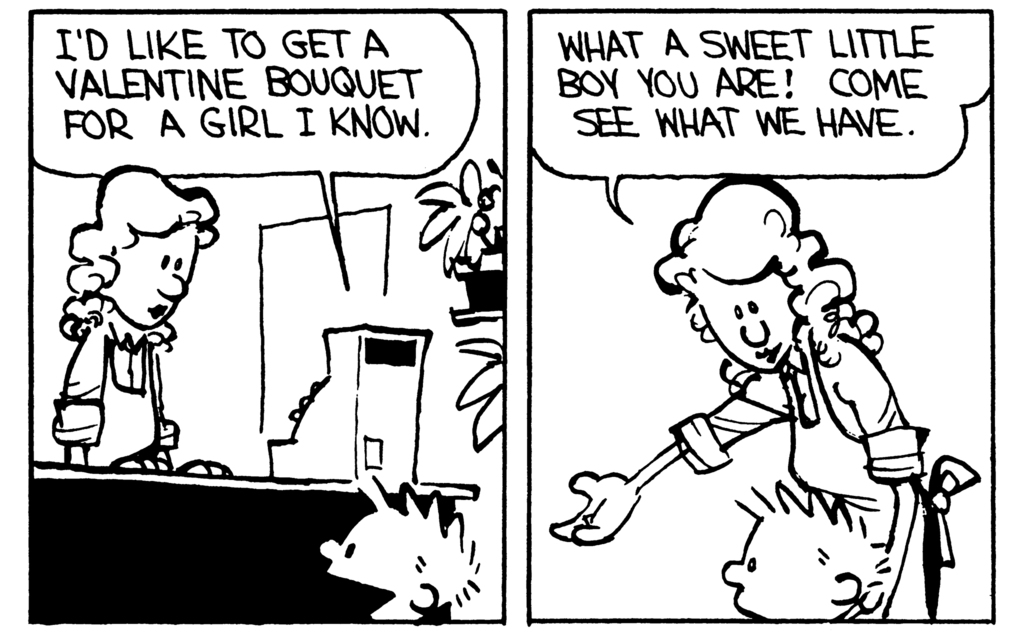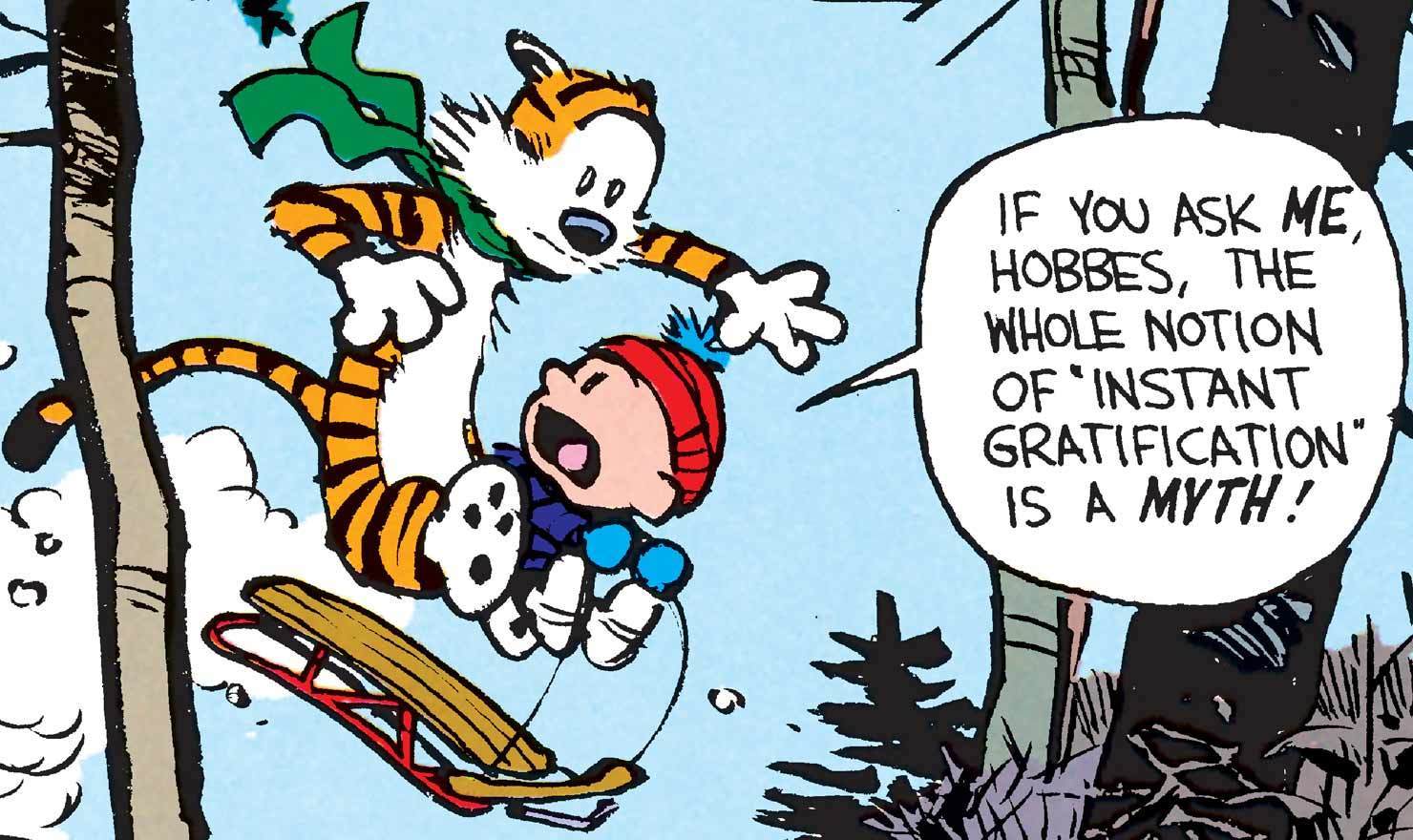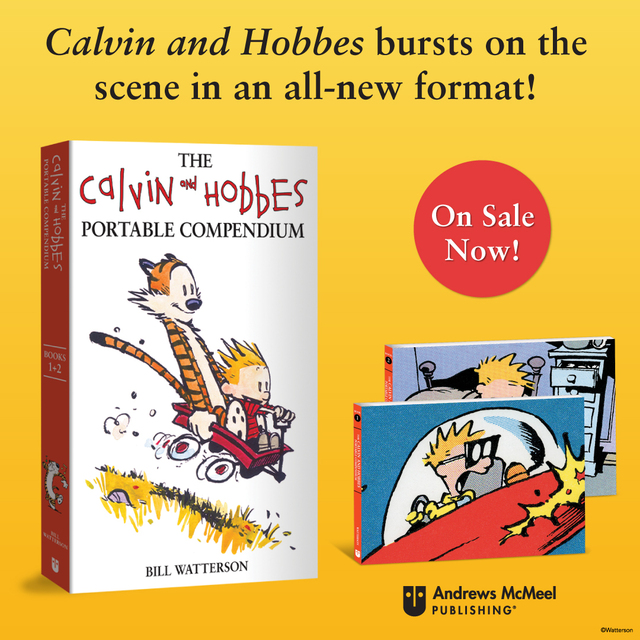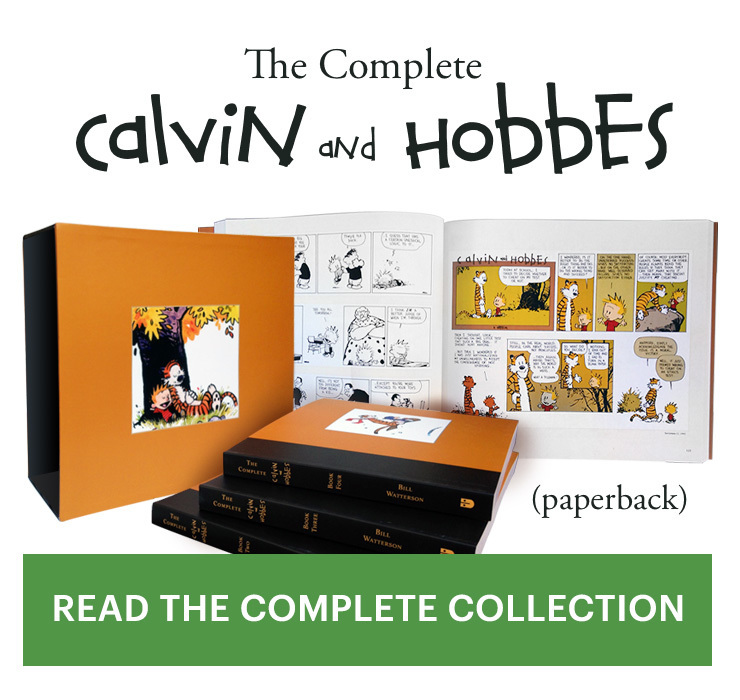Calvin and Hobbes by Bill Watterson for November 02, 1990
Transcript:
Calvin: The hard part for us avant-garde post-modern artists is deciding whether or not to embrace commercialism. Do we allow our work to be hyped and exploited by a market that's simply hungry for the next new thing? Do we participate in a system that turns high art into low art so it's better suited for mass consumption? Of course, when an artist goes commercial, he makes a mockery of his status as an outsider and free thinker. He buys into the crass and shallow values art should transcend. He trades the integrity of his art for riches and fame. Oh, what the heck. I'll do it. Hobbes: That wasn't so hard.








I’m glad Bill Watterson had higher principles than Calvin.
Even if, as Hobbes, he rolled his eyes.
I never could figure out why he picked Calvin (that dried-up puritanical reformer) for the libertarian, self-centered Calvin character, and the pessimistic Hobbes (“life is nasty, bruitish and short”) for the tiger. I mean, really—Hobbes is impish and can leave Calvin bruised, but he’s more cultured and far taller than Calvin.